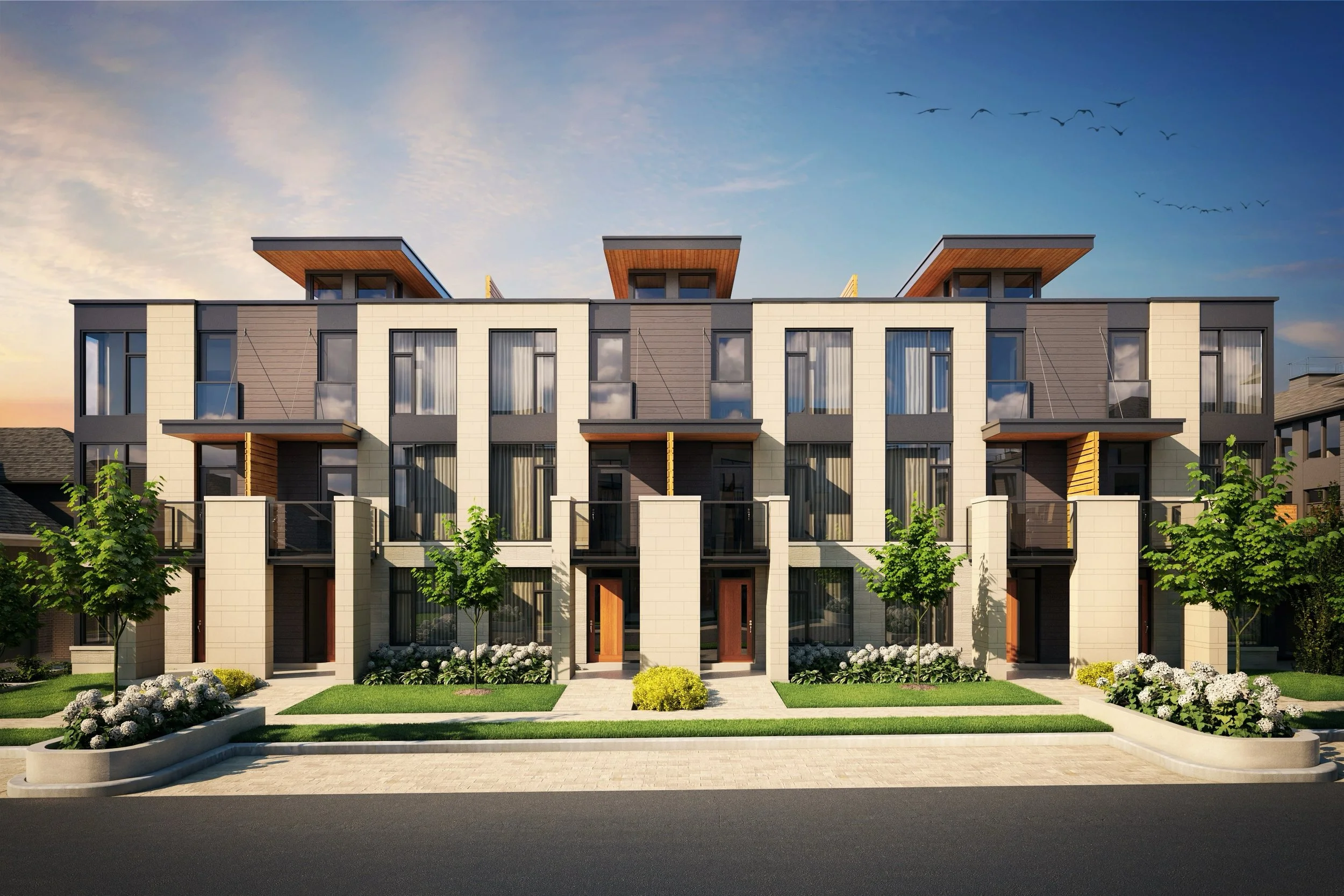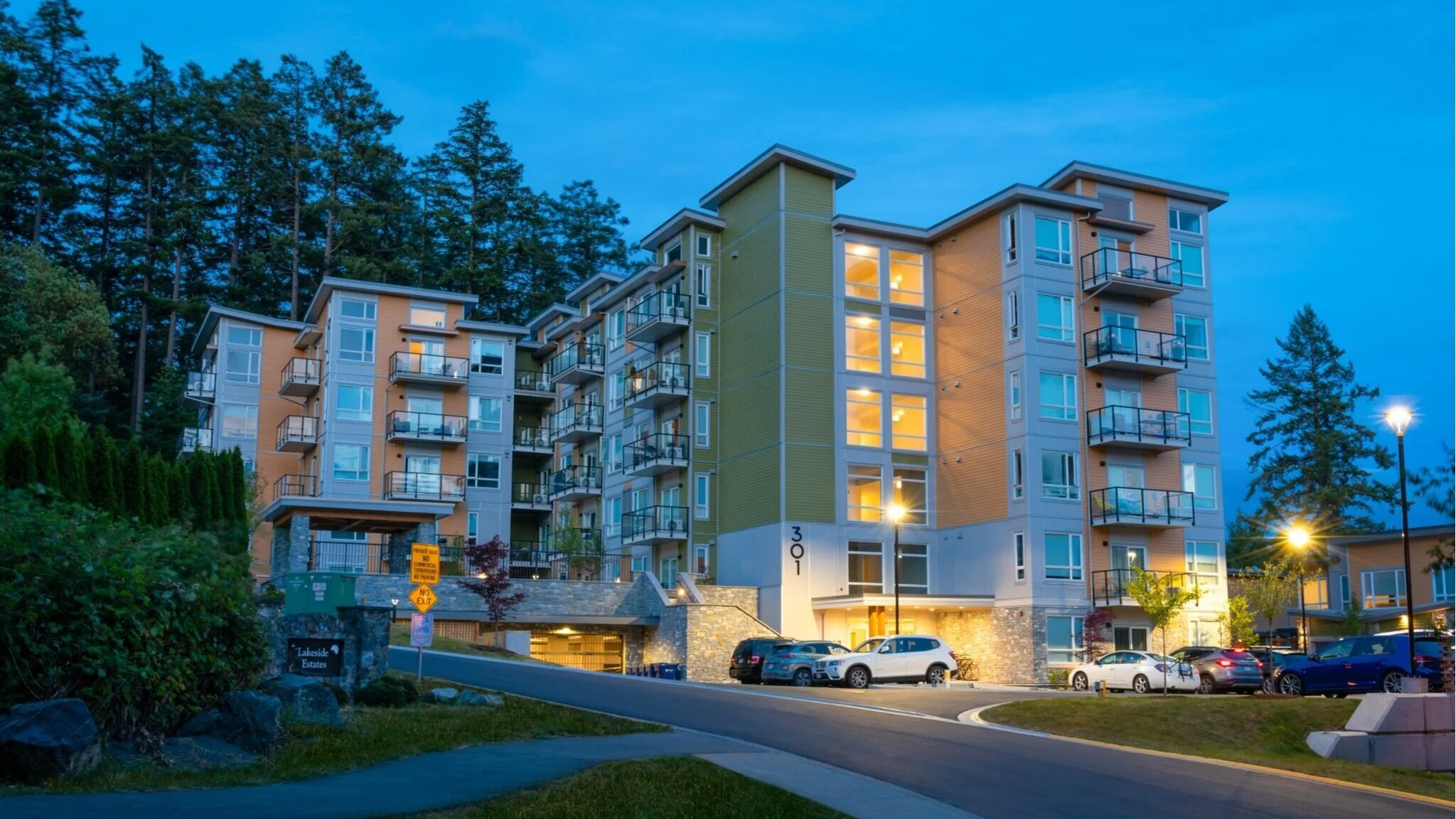tuesday topics: vancouver’s development landscape is shifting—here’s what landowners need to know
Vancouver’s residential development landscape is shifting fast—and for landowners and developers, staying ahead of these changes could mean the difference between a missed opportunity and a multimillion-dollar sale.
In this week’s Tuesday Topics, we break down the most important news shaping land values across the region, from sweeping rezonings and extended DCC protections to surging housing starts and emerging climate rules.
Whether you’re holding, buying, or selling, this article will help you understand where the market’s heading and how new policies may impact the value of your site.
vancouver moves to eliminate spot rezonings in broadway and cambie
Vancouver is moving decisively to streamline the development process, especially inside the Broadway Plan and Cambie Corridor. A staff proposal heading to council this week would proactively rezone over 4,000 parcels into new standardized “R” zones—eliminating the need for individual rezonings. For developers, this could cut 12 to 15 months from the approval timeline, a major reduction in risk and carrying costs that directly boosts land value.
industrial land may be next in line for housing conversion
Meanwhile, city council is also considering whether to study converting select industrial lands to mixed-use. While still early-stage, the motion reflects ongoing political pressure to unlock more development land. For landowners holding underused industrial sites, this could open new pathways to significantly increase value.
rupert–renfrew upzoning opens door to towers up to 45 storeys
The city has finalized the Rupert and Renfrew Station Area Plan, a 660-hectare area straddling East Vancouver’s two SkyTrain stations. The plan allows towers up to 45 storeys and targets 10,000 new homes over the next 25 years. While infrastructure upgrades are still pending, the plan sends a clear signal: if you’re holding land in this area, the city wants it redeveloped.
Upzoning alone doesn’t guarantee value—feasibility still hinges on servicing costs, DCLs, and developer appetite. But entitlements are a first step, and for landowners inside the plan boundary, the groundwork has been laid.
province extends fee protection, giving developers more certainty
As of July 15, the B.C. government has doubled the development cost charge (DCC) “instream protection” window from 12 to 24 months. This gives developers an extra year of certainty on major fees, helping to secure access to a quarter-billion dollars in federal infrastructure funding. For landowners, this means fewer sudden surprises in the pro forma—and that makes your land easier to price and sell.
victoria signals it will override zoning delays in wealthy suburbs
This isn’t the only signal from the Province. New directives issued to West Vancouver and Oak Bay—two of the region’s most restrictive municipalities—make it clear that the Province is willing to override local zoning in the name of housing. The ripple effects add momentum to Vancouver’s own planning agenda.
housing starts surge while prices stay stable—developers are building
New housing starts in Vancouver CMA rose 74% year-over-year in June—one of the sharpest increases in the country. National starts also rose 14%. That activity reflects builder confidence, and reinforces demand for well-located, development-ready land.
Resale home prices in Metro Vancouver remain soft but stable, with a 2.8% year-over-year decline in the benchmark price. This tempers resale expectations but doesn’t undermine appetite for purpose-built rental or condo projects—especially if pro formas pencil thanks to faster approvals and fee certainty.
interest rate cuts stall, but stable rates support investment
After June’s higher-than-expected inflation numbers, economists are dialing back expectations for further Bank of Canada rate cuts in 2025. Most now believe the overnight rate will hold steady at 2.75% through year-end. While this isn’t the cut-driven rally many hoped for, it does offer stability.
For developers and land investors, a flat-rate environment reduces financing uncertainty. If presale demand firms or rental pricing grows, stable rates give some tailwind to acquisition decisions made now.
new climate code will raise costs—land buyers should plan ahead
The City’s 2025 Climate Progress report points to a slate of upcoming regulations that will affect how new buildings are designed and built. These include tighter limits on embodied carbon, stronger incentives for mass timber, and stricter tree protection rules.
For today’s land buyers, this means higher construction costs on the horizon—especially on larger sites. That said, climate-aligned designs may come with density bonuses or branding advantages. Either way, savvy investors will start factoring these rules into residual land value models immediately.
stay ahead of the curve with expert guidance
I monitor these shifts closely so my clients don’t have to. Whether you’re exploring a sale, planning a project, or simply holding land with future potential, I’ll help you understand where the market’s headed—and how to get the most from your property.
Reach out anytime for a tailored, no-pressure conversation.
-
British Columbia Ministry of Housing. (2025, July 15). Extension of development cost charge protection period. Retrieved from https://news.gov.bc.ca/releases/2025HOUS0043-001234
British Columbia Ministry of Housing. (2025, July 21). Ministerial orders issued to West Vancouver and Oak Bay to comply with provincial housing targets. Retrieved from https://news.gov.bc.ca/releases/2025HOUS0049-001275
Canada Mortgage and Housing Corporation. (2025, July 16). Housing starts in Canada’s urban areas up in June. Retrieved from https://www.cmhc-schl.gc.ca/en/professionals/housing-markets-data-and-research/market-reports/housing-market-data/monthly-housing-starts-construction-data
City of Vancouver. (2025, July 8). Rupert and Renfrew Station Area Plan approved. Retrieved from https://vancouver.ca/home-property-development/rupert-and-renfrew-station-area-plan.aspx
City of Vancouver. (2025, July 22). Climate Emergency Annual Report 2025. Retrieved from https://vancouver.ca/files/cov/2025-climate-emergency-progress-report.pdf
City of Vancouver. (2025, July 22). Regular Council Meeting Agenda – July 22, 2025. Retrieved from https://council.vancouver.ca/20250722/regu20250722ag.htm
Real Estate Board of Greater Vancouver. (2025, July 3). June 2025 Market Stats Package. Retrieved from https://members.rebgv.org/news-archive/market-stats-june-2025.html
Statistics Canada. (2025, July 16). Consumer Price Index, June 2025. Retrieved from https://www150.statcan.gc.ca/n1/daily-quotidien/250716/dq250716a-eng.htm
Trading Economics. (2025, July 21). Canada Overnight Lending Rate – Forecast & Historical Data. Retrieved from https://tradingeconomics.com/canada/interest-rate
















